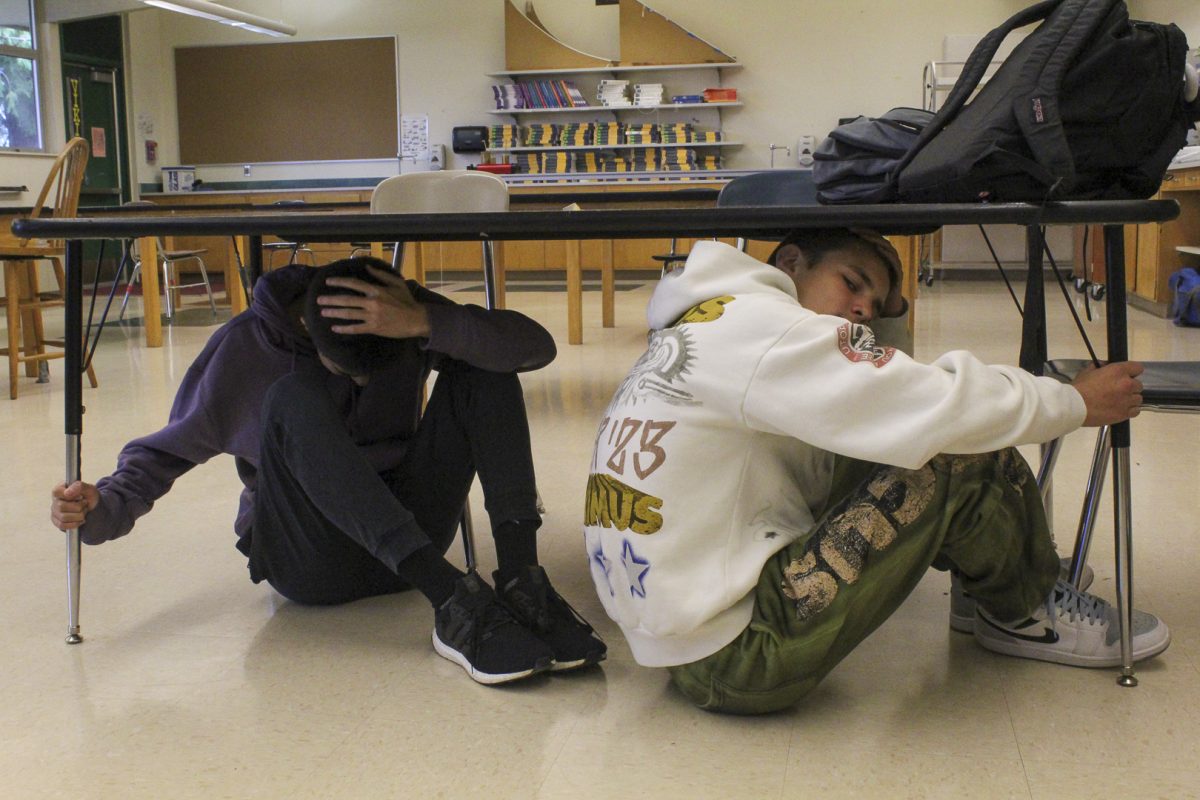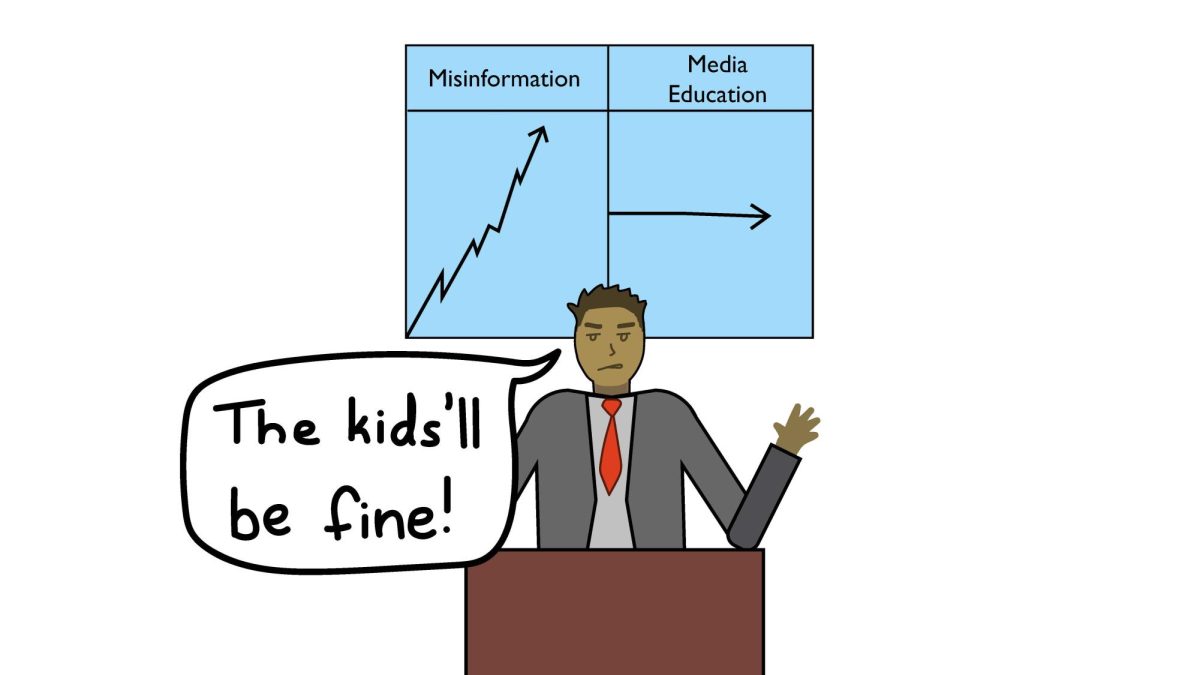To prepare for destructive events, Washington schools have mandatory earthquake drills once a year. However, these practices are only useful if students and staff take them seriously. Although drills can give students a general idea of what to do in the event of an earthquake, Inglemoor’s emergency preparation is less effective because the school fails to educate students about important safety details, and most of the student population doesn’t take drills seriously during the annual practice.
The Pacific Northwest is vulnerable to earthquakes due to its proximity to colliding tectonic plates in the Cascadia Subduction Zone. Several dozen noticeable earthquakes and thousands of smaller earthquakes are recorded in the Pacific Northwest each year, according to the United States Geological Survey. In the next 50 years, most of Washington’s populated areas have a 40-80% chance of experiencing a large earthquake, according to the Washington State Department of Natural Resources. In the past 20 years, earthquakes have also affected more than 125 million people in the form of injury, displacement or evacuation worldwide.
Drills instruct students to seek cover under secure furniture so falling debris won’t damage their heads and necks. Once the shaking stops, classes are supposed to evacuate to their stage one location in the parking lot in case the building is not structurally sound. Afterward, they’ll move to stage two locations on the field.
However, there is a stark contrast between drills and the actual procedure. During drills, some classes evacuate directly to their stage two locations instead of going to the stage one location. This could be attributed to poor education, time concerns or simply ignorance, all of which impact the school’s level of preparation.
Practicing these drills is critical, but their effectiveness depends on the perspective of students and staff. Current earthquake drills are less effective because the student population feels like they’re useless. Drills only give students a vague idea of what to do and fail to provide room for students to learn because of the inadequate explanations of procedures. And if students are making mistakes or not taking the practice seriously, they won’t be prepared for emergencies. During drills, students often talk to their friends or don’t follow instructions, without consequence.
Although we can never be fully prepared, in the event of a real earthquake, the ensuing chaos would be impossible to manage no matter how many times you drill for it. When a building is shaking and the ceiling is falling, students willlikely panic and be unable to remember and apply what they learned from drills because of the chaos.
Principal Adam Desautels (he/him) said his school reacted to the 2001 Nisqually earthquake very poorly. Students didn’t follow the drills or take cover under desks; rather, they just stood there. Fortunately, the building wasn’t damaged, but if it was, injuries may have ensued.
Schools still fail to educate students about what to do in an earthquake when they’re not at school. Many students don’t know about the various hazards following an earthquake either. If students are caught in an unfamiliar environment, the vast majority would not know what to do.
Broken gas lines often occur during an earthquake, resulting in dangerous gas leaks that may lead to fires and even explosions. Power lines can also break during an earthquake, but schools do not cover these hazards and how to react to them.
According to the Federal Emergency Management Agency, those in earthquake-prone areas should also construct an emergency plan and have enough supplies for at least three days without transportation, running water and power to be prepared for a natural disaster. They also encourage people to attend local meetings, talk to others and learn more about being prepared.
As a school, we have much to improve in emergency preparation, but fortunately, we don’t have that far to go. If drills were simply modified to be more interactive and educational by asking students questions and providing context, students would be better equipped for emergencies. This would also help change negative sentiments around emergency drills. By taking increasingly proactive measures in earthquake preparation, we can minimize possible injuries and loss of life.











